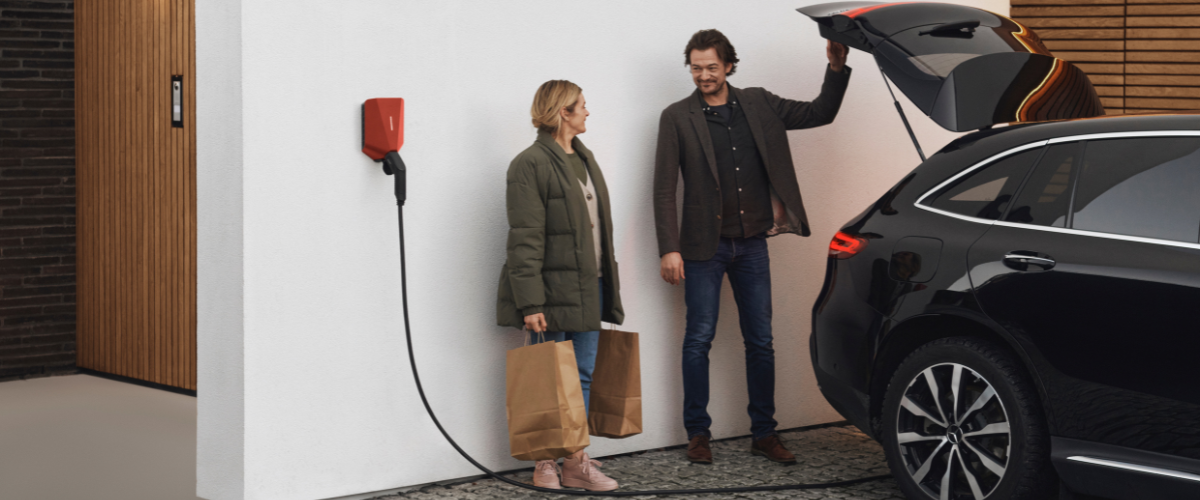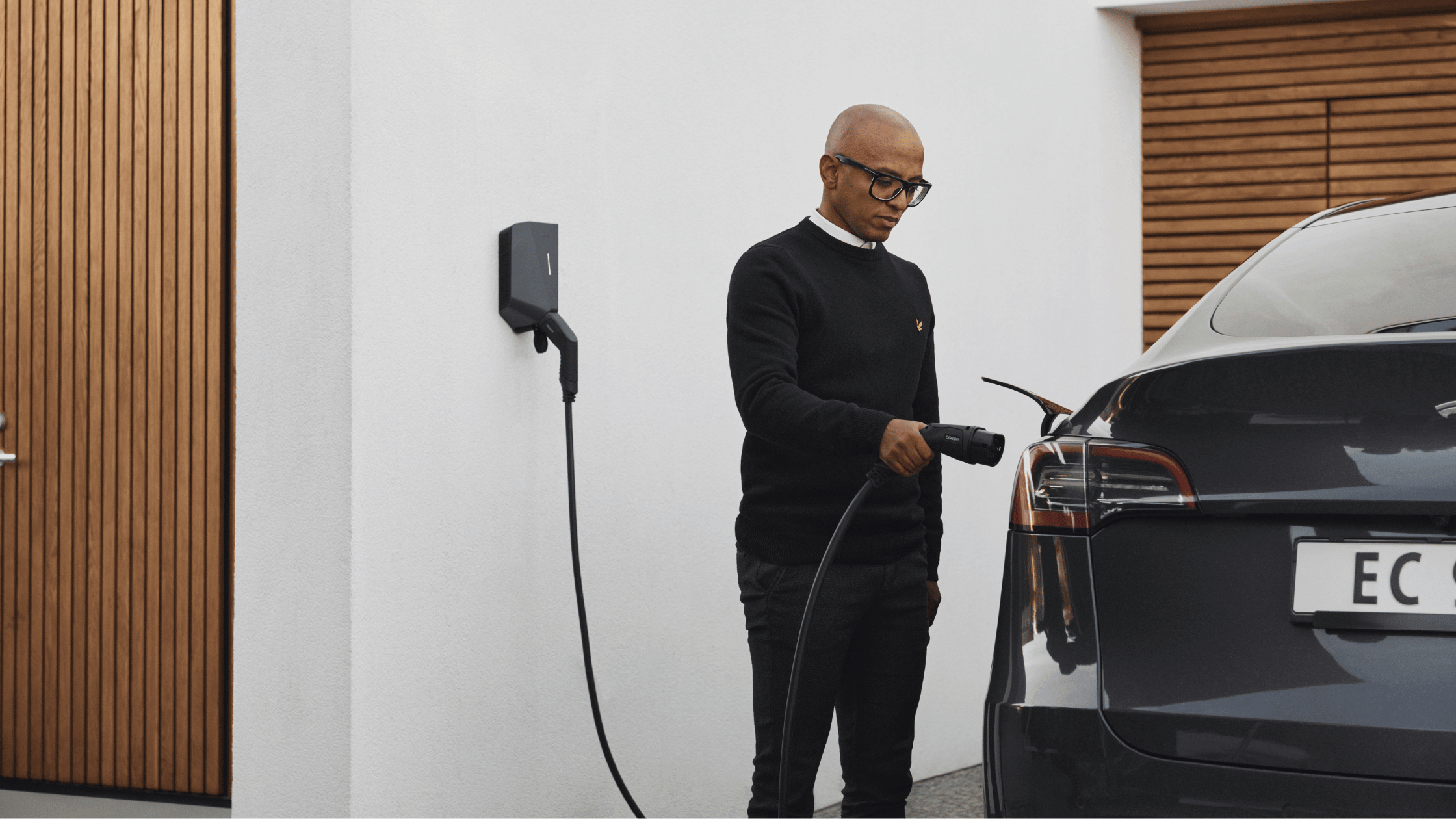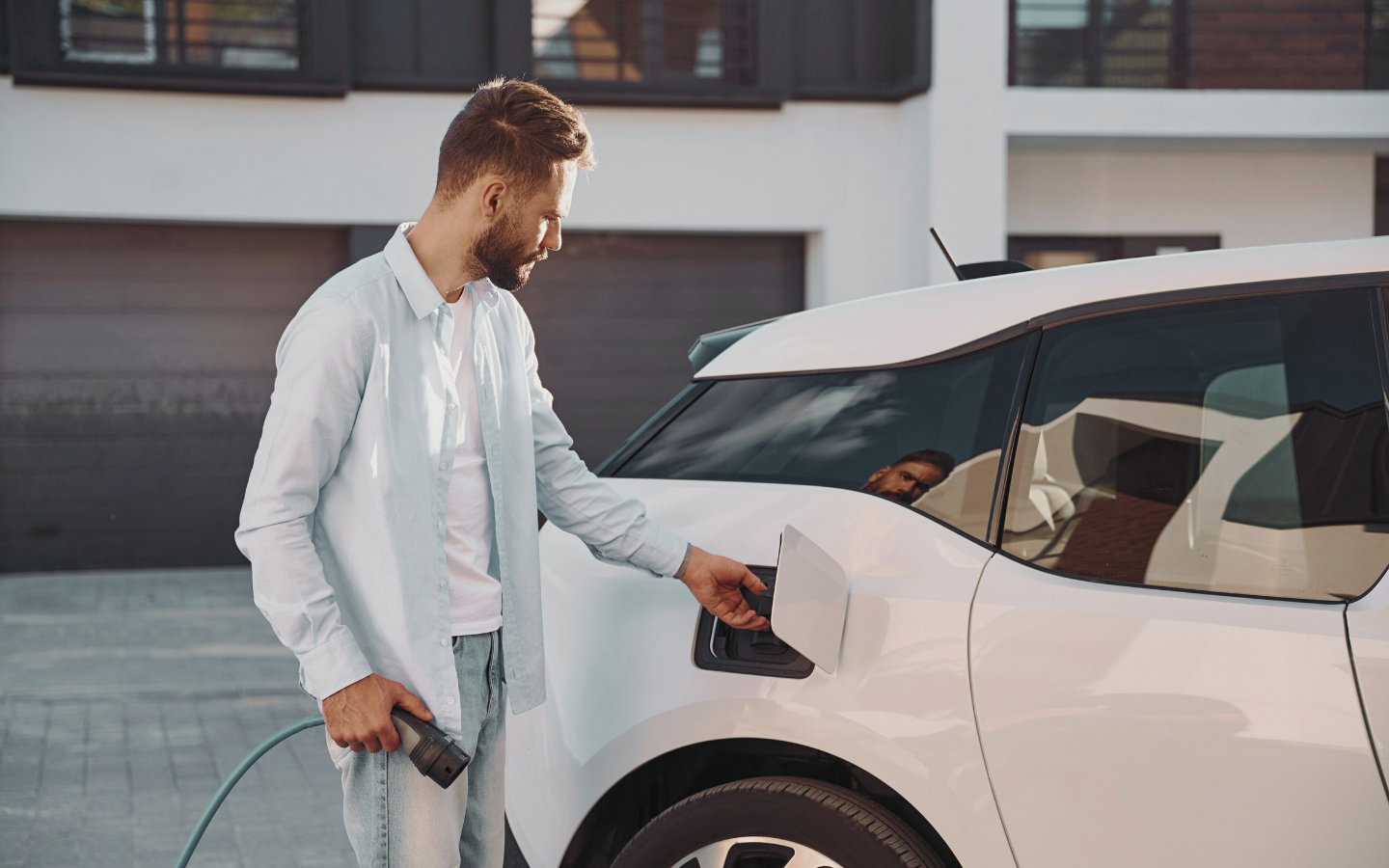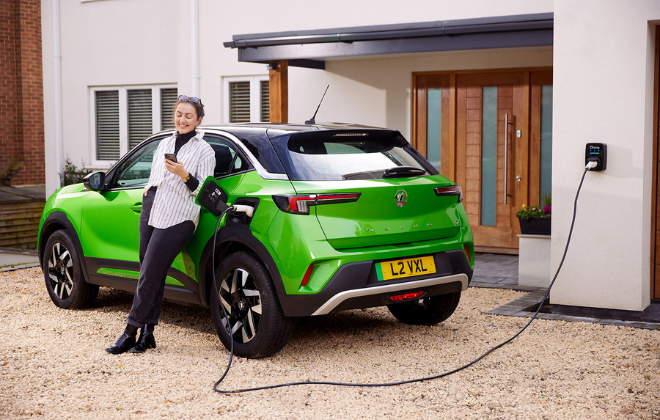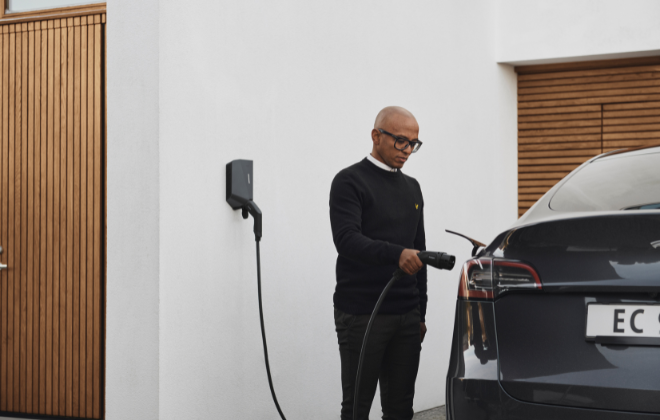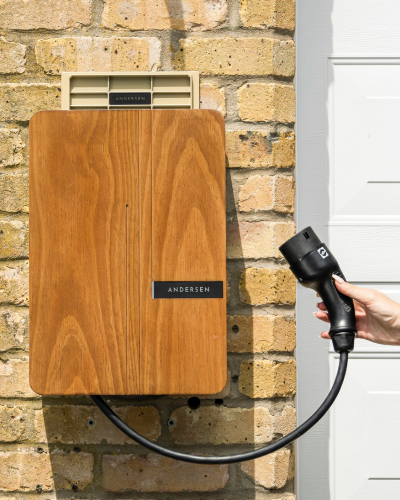
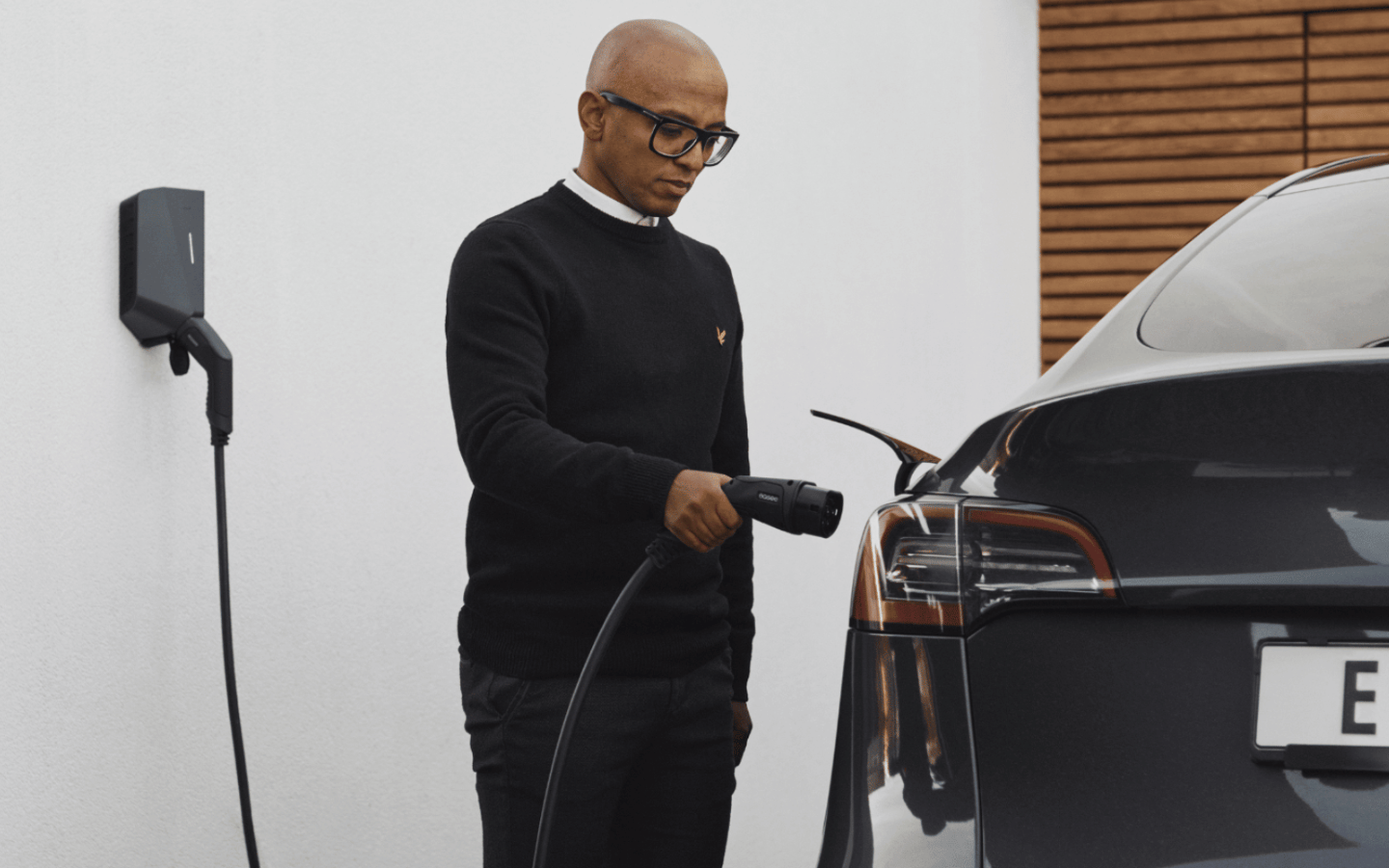
How to Choose the Right Size Charging Cable for Your EV Charger
What size charging cable do I need for an electric car charger?
Choosing the correct EV charger cable size is crucial for successful charging. If you don’t have a suitable cable, you won’t be able to charge your EV. Simple.
In fact, there are several important factors to consider to make sure you select the appropriate size cable.
In today’s article, we will answer the question, “What size cable do I need for an EV charger?” and help you make an informed decision.
What is an EV charger cable?
An EV charging cable is a crucial tool that links your EV charger to your electric vehicle. It has two ends – one connects to the socket on the chargepoint, and the other connects to the socket on the electric car. EV charger cables are designed to safely transfer power from a power source to your electric vehicle, ensuring a smooth charging process. Whether at home or public charging stations, having a reliable charging cable is essential to charge your electric car.
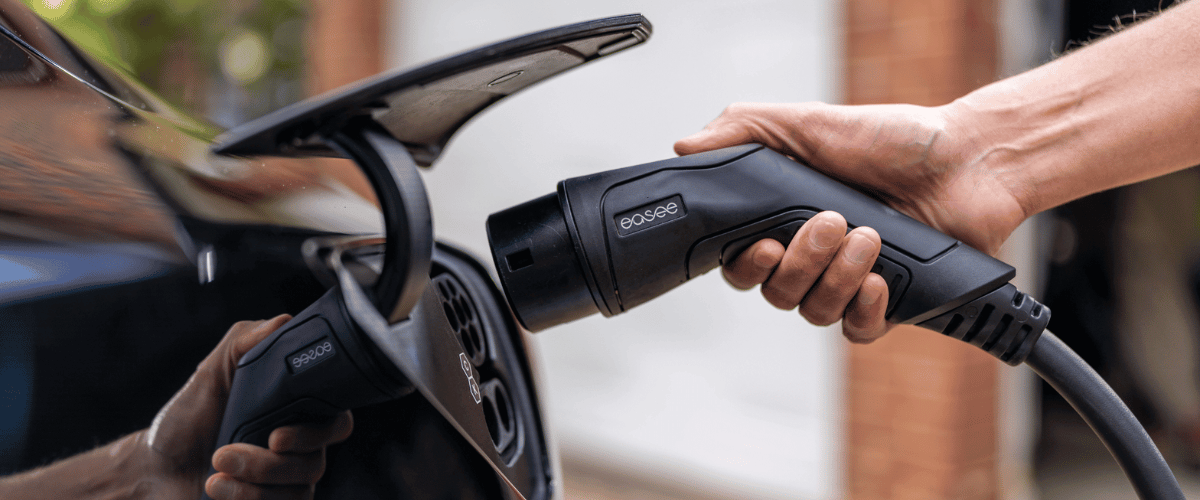
The different types of EV charger cable
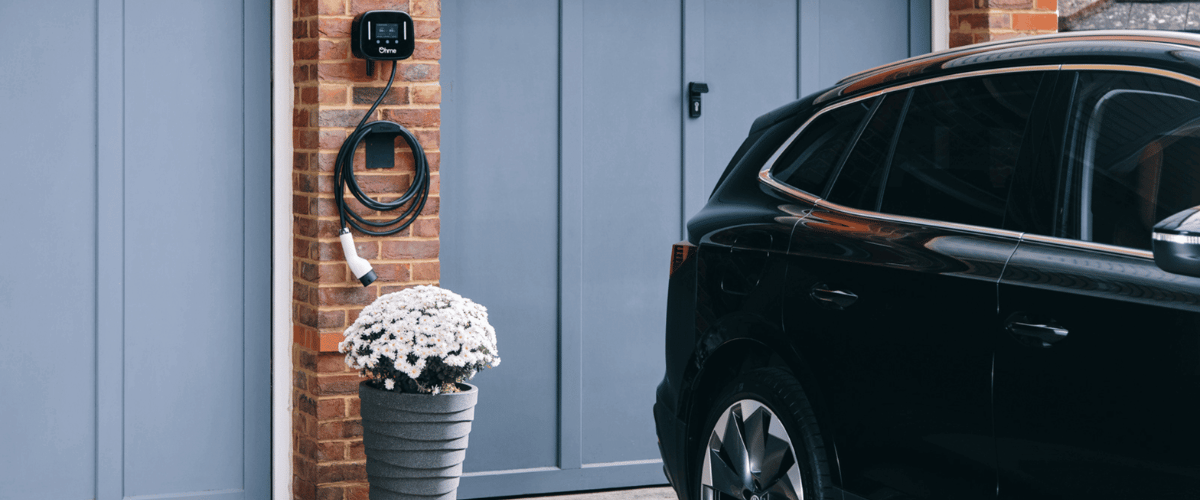
CCS, CHAdeMO, Type 1 and Type 2 charging cables
EV charging cables also vary in the type of connectors they have. These connectors, such as type 1, type 2, CCS, and CHAdeMO, play a vital role in ensuring compatibility between the cable and the inlet of your electric vehicle. Matching the connector type to your EV’s inlet is crucial for efficient charging. For instance, if your electric vehicle has a type 2 inlet, you need a cable type with a type 2 connector.
CCS (combined charging system) and CHAdeMO connectors are only used for rapid charging and always come attached to public charging points. So, you wouldn’t need to buy separate chargers for these connector types. As such, you would only need to decide on a type 1 or type 2 cable for fast charging at home and in public.
For more information about the difference between type 1 and type 2 chargers, read our blog.
Cable capacity
Moreover, EV charging cables differ in their current ratings, which indicate the maximum electrical current they can safely handle. You should choose a cable with a current rating that matches your EV charger’s charge rate. This is necessary to avoid damage and ensure you can use the charger’s full power.
For example, if you own a single-phase 7kW home EV charger, you need to get a single phase cable with a current rating of at least 32 amps to ensure the cable can handle the full charging capacity of the charger.
Moreover, if you have a 22kW EV charger and a three-phase electricity supply, you must buy a three-phase cable.
Furthermore, considering the length of an EV charging cable is also crucial. The cable size can impact its convenience and usability, depending on your charging setup. In this blog, we delve into the factors to consider when selecting what size cable for an EV charger you need.
Average size of EV charging cables in the UK
Typically, EV charging cables are 4 to 10 meters long. But you can find shorter or longer cables, from 2.5m to over 20m.
For example, most tethered EV chargers have a 5-meter cable that remains permanently connected to the charging unit. Similarly, the charging cables that come with an electric vehicle are commonly around 5 meters long.
Factors to consider when buying an EV charging cable
Many individual factors should be considered when deciding what size EV charging cable you should buy. When determining your EV charging cable length, you should consider the following:
Where do you plan to install the charging point?
Consider where you intend to install the charging point in your home. Measure the distance between your EV and where you want the charger installed to determine the appropriate cable length. Adding a bit of extra length is advisable to accommodate flexibility and prevent any cable strain that could damage the charger. At the same time, avoid selecting an excessively long cable as it may pose a tripping hazard for individuals passing by.
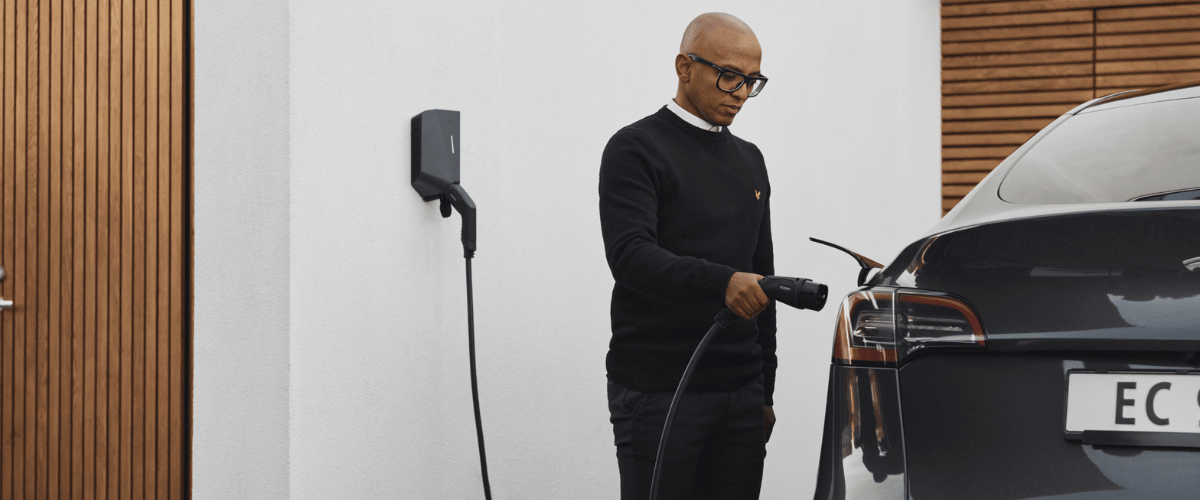
Futureproofing yourself
Having a longer charging cable for your car charger gives you greater flexibility for different situations that may arise. For instance, if you decide to park your vehicle in a different location at home, a longer cable would be beneficial. A longer cable could be particularly useful if you move to a new house where the charging point is further away from the parking spot.
Moreover, you might require a longer type of cable if you switch to a new electric vehicle with a charging socket located further away than your current one, such as the front of the car rather than the side. By anticipating these potential scenarios, having a longer cable on hand ensures you are prepared for any changes.
Storage and transportation
Longer EV charging cables can be heavy and difficult to carry from place to place. For example, when you want to charge your electric vehicle in public and at home, carrying a long, heavy charging cable and stowing it in your vehicle’s boot can be awkward. In contrast, opting for a shorter charging cable can make transportation much simpler and more convenient for you.
Do you need to use public or home fast charging points?
Consider choosing a smaller cable size if you mainly charge your electric vehicle at home. This is because your home charger is often located near your parking spot. On the other hand, if you frequently rely on public chargers, opt for a slightly longer cable. Public charging stations can have varying distances between the charger and the parking space, so a longer cable may be more convenient.
Choosing the right cable size when using a home EV charger
A shorter cable length is usually enough when charging your electric vehicle at home. With a shorter cable, EV owners can easily connect their cars to a home charge point, which is often mounted on a wall near where they park. This length also helps prevent the cable from getting tangled and makes storing it more convenient when the charger is not being used.
Choosing a charging cable when charging in public
Some public charge points provide cables for your electric vehicle, while others need you to bring and plug in your own. So, if you often use public chargers, consider buying a longer charging cable for your electric car. This way, you’ll be prepared for varying distances between the charger and the parking spot at different public charging locations.
Pros and cons of different cable sizes
Shorter cables (2.5 to 5 meters)
Pros:
- Cheap
- Lightweight
- Convenient
- Easy to store and transport
- No tripping hazard
Cons:
- Lacks flexibility and futureproofing
- Inconvenience in some situations
Medium cables (5 to 10 meters)
Pros:
- More flexibility and futureproofing than shorter cables
Cons:
- Slightly more expensive than shorter cables
Long cables (Over 10 meters)
Pros:
- Offer the greatest flexibility and futureproofing
Cons:
- Expensive
- Heavy
- Awkward to store and transport
- It can be a tripping hazard
What is the best size electric car charging cable?
Choosing what size cable for an EV car charger depends on various factors specific to each person. However, in our view, a cable between 5-10 meters strikes a perfect balance. This length provides flexibility for different charging scenarios while also ensuring future compatibility. Moreover, cables in this range are not excessively costly, bulky, or difficult to manage when storing or carrying them.
Extension cables and adapters
If you own a tethered EV charger that is already installed but find that your tethered cable is too short, you can buy extension cables and adapters to make it longer. But, it’s important to be careful when using these accessories because they can lead to overheating and voltage drops, affecting the charging speed and creating safety risks.
The solution is more straightforward for those with untethered EV charging points who need a longer cable. You can purchase a new EV cable and connect it to your charging station, making the charging process easy and convenient.
Conclusion
In short, when it comes to the question – “what size cable for an electric car charger in the UK?” – this is what you need to know to ensure you choose the right cable size for your EV charger.
- Selecting the right cable size for EV charging is crucial for successful charging.
- Cable length considerations include convenience, futureproofing, cost, storage, transportation, and charging location.
- Shorter cables (2.5-5m) are cheaper and lightweight but lack flexibility and futureproofing.
- Medium cables (5-10m) offer more flexibility and futureproofing but are slightly more expensive than shorter cables.
- Longer cables (over 10m) provide maximum flexibility and futureproofing but are expensive, heavy, and can be a tripping hazard.
- Our recommended cable size is 5-10 meters, balancing flexibility, cost, and manageability.
- Ultimately, when deciding the cable size for a 7kW EV charger depends on various factors specific to each person.
If you want a home EV charger installation, click below to get your free quote, or contact us for more information or any queries you may have.
For more information and our latest updates, make sure you’re following us on social media. You can find us on Facebook, Instagram, Twitter, LinkedIn and YouTube.
Related articles_
Stay up to date on the latest from We Power Your Car_
I consent to receive newsletters from We Power Your Car. Please see our Privacy Policy
